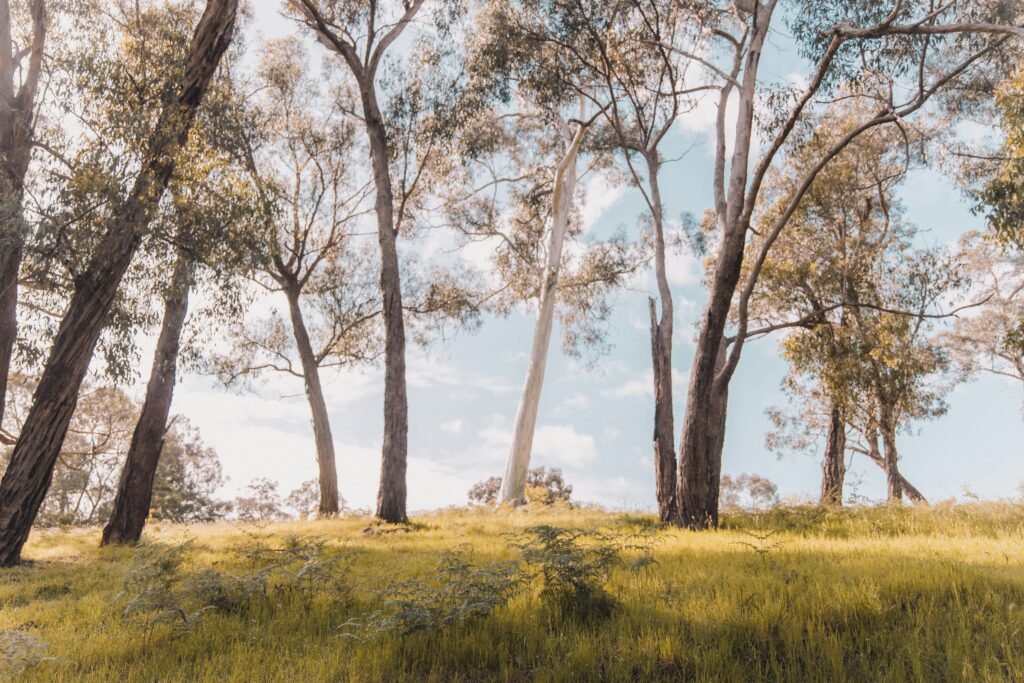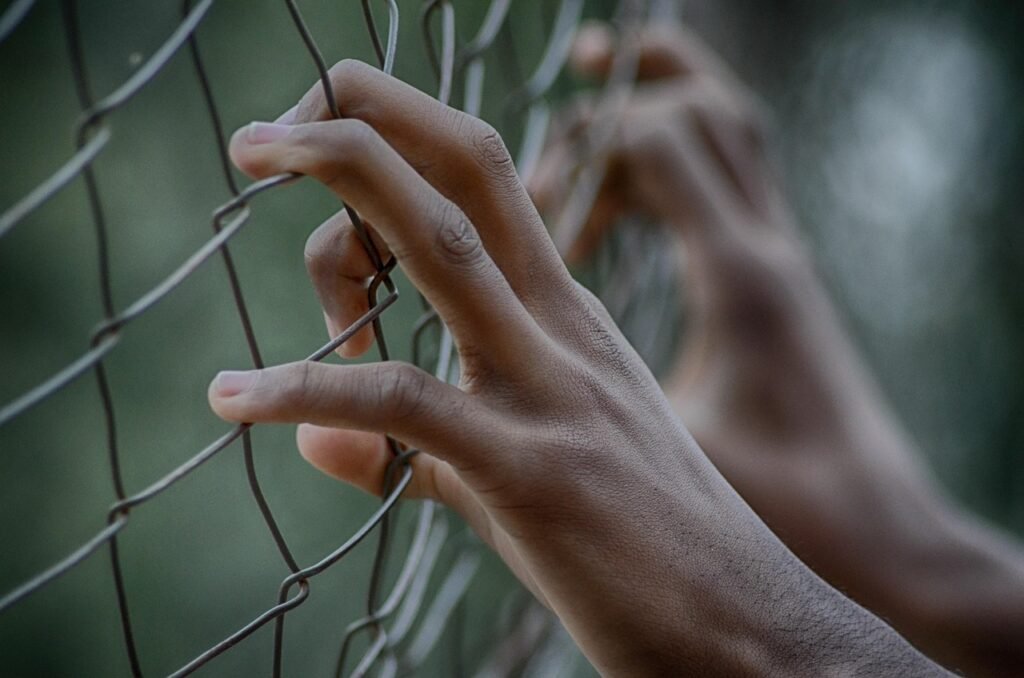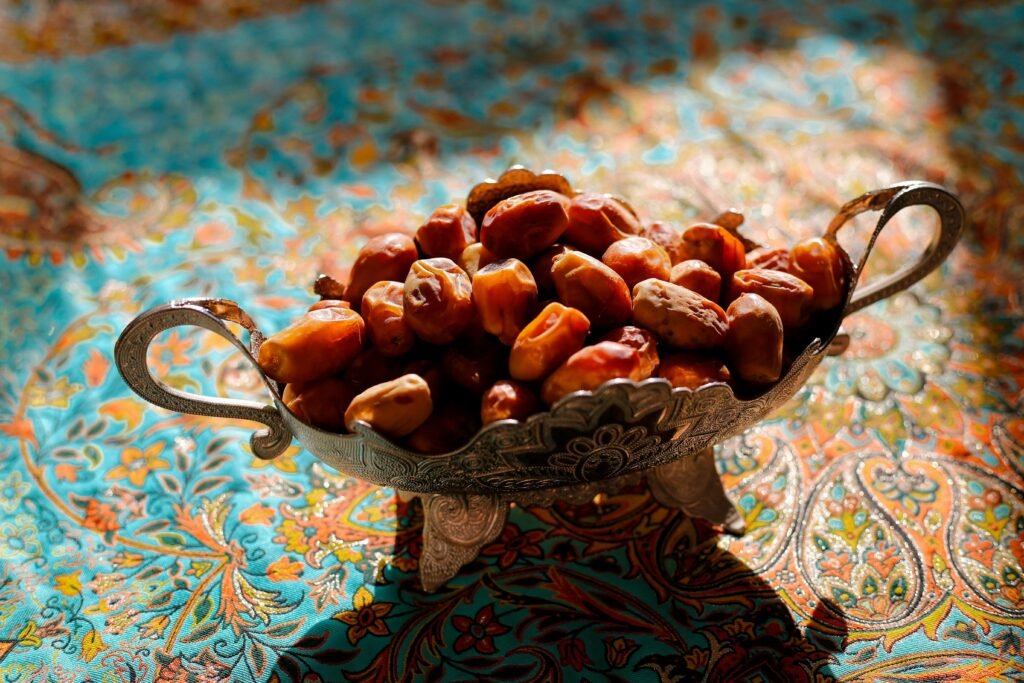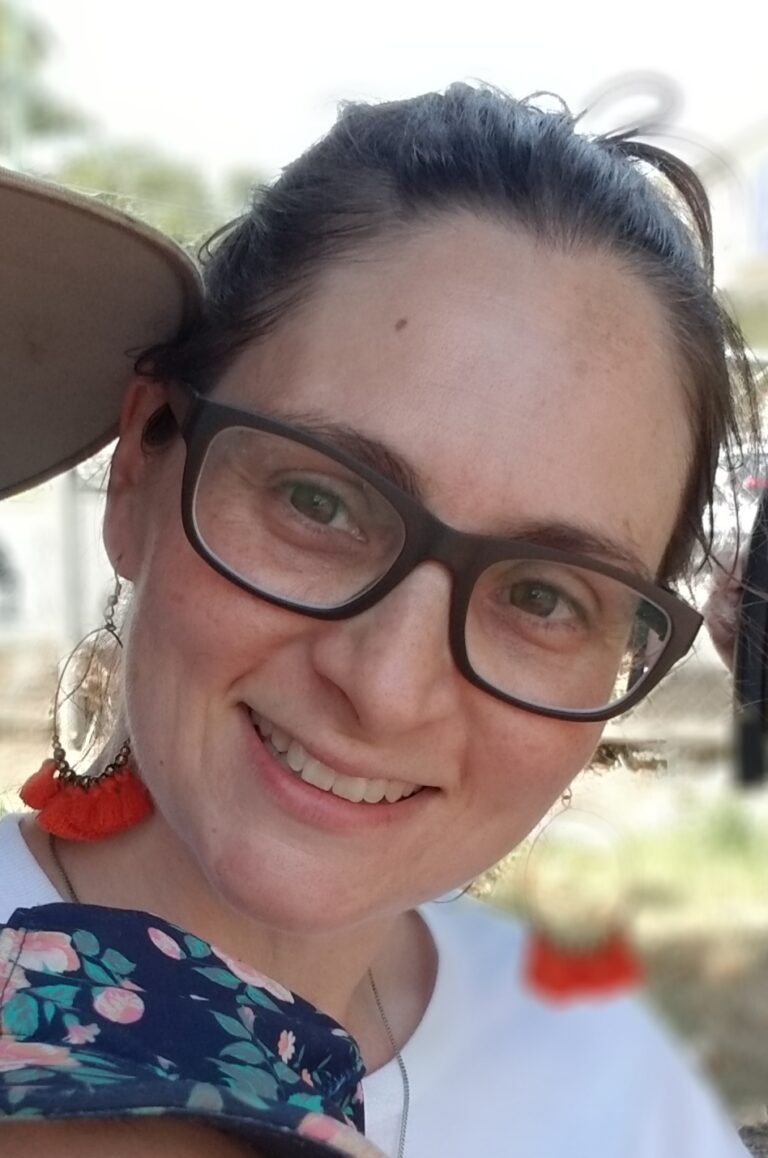The story that follows is inspired by a number of true stories from people I met in immigration detention who came to Australia seeking asylum. Names and details have been changed to respect the privacy and protect the identity of individuals, but everything written is based on real events and the truth of my experience being with and coming to know the people I had the privilege to meet.
In 2025, Ramadan and Lent coincide for the first time in 33 years. This celestial and spiritual alignment is an opportunity for Muslims and Christians to reflect and better understand our shared humanity and what unites us as people of God.
Each year for 40 days, Christians throughout the world observe the holy season of Lent, a period of fasting, prayer and almsgiving leading up to the great feast of Easter and which recalls the 40 days Jesus spent fasting and praying in the desert, before returning to his most important public ministry in Jerusalem.
Each year, for one month, Muslims throughout the world observe the holy month of Ramadan, a period of fasting, prayer and almsgiving leading up to the great feast of Eid ul-Fitr and which recalls the month where the Prophet Muhammed received the Quran, before the Hijra, his migration from Mecca to Medina.
The word Ramadan comes from the Arabic root ‘ar’ramad’ which means ‘scorching heat’.
The word Lent comes from the Old English word ‘lencten’ referring to the ‘lengthening of days’ in the springtime. Arab Christians call the season ‘The Great Fast’ (al-ṣawm al-kabīr).
Fasting is a personal exercise and offers the freedom to go without what we usually deem necessities of daily life, in the pursuit of a deeper reliance on God and that which is truly essential.
It is the freedom to go without, in order to strengthen within.
Deprivation is a political tool, and forces people to be without what we should always deem basic human rights, in the pursuit of crushing the human spirit and denying that which is truly essential.
It is being forced to go without, in order to break you within.
Both Ramadan and Lent are an ordained time of physical and spiritual purification and renewal in the symbolic ‘scorching heat’ of the ‘wilderness’ and begin and end with the cycles of the moon.
An unending time of physical and spiritual torment had befallen Azar for more moons than he could remember…
He looked blank. Lifeless. Such a tall, strongly-built man with broad shoulders and such striking features; yet, he was – blank. His thick, dark hair and deep, dark eyes heightened the sense of darkness that hung over him, harsher still under the fluorescent light.
REQUEST TO VISIT: Azar Massoud
NAME OF VISITOR: Erin Kennedy
REASON: Volunteer
STATUS: PENDING
*I wrote volunteer, but the subtext was: A faith filled desire to uphold the dignity and recognise the humanity of those being detained and denied their basic human rights; to see the face of God in another. To be present and bear compassionate witness to another’s suffering. To honour a Lenten commitment in the pursuit of a deeper reliance on God and that which is truly essential.
There wasn’t space for that.
We had written the name on our visitor request form before we had even met. My fiancé and I had joined a group of volunteer visitors to the Immigration Detention centre as something to take up during Lent together. Not that I had ever visited a prison, but that’s what it felt like. That’s what it was. He had had come to Australia seeking asylum – safety and freedom – from Iran. But like all the others imprisoned there with him, he had made the fatal flaw of seeking safety via the ‘wrong’ means of transport. He came by boat. He was one of the people our Government named after their mode of transport: ‘Boat Person’. He was given an ID number. But he had a name. Azar. It means fire in Persian.

It’s dusk. There is a gentle breeze coming across the swampy marsh of the wetlands. Not enough to stop the mozzies. Sitting opposite us on the aluminium picnic table and benches in the common area, Azar is silent. Distant.
Blank.
Numb to his pain? Exhausted, at the interminable detainment? The awkward meeting with a stranger, in a foreign country, who does not speak your language, but has for some unknown reason, come to sit with you? Depression in the face of such cultivated cruelty? Surely all of the above.
Conversation is a strain.
His English is ok. Our Farsi, Kurdish and Arabic are non-existent.
He thanks us for coming. We say we’re so sorry it’s like this, it isn’t fair. It’s wrong.
We’ll come again.
It takes a few visits before Azar tells us, in Iran he was a doctor. He was training to be a reconstructive plastic surgeon. His results were in the top 1% of students across the country. But he was expelled for participating in a peaceful protest against the killing of Iranian Kurds. Friends of his at the same protest were arrested and imprisoned. Some were interrogated and beaten. He tells us, he wanted to become a surgeon, so he could perform lifesaving surgeries on the people who are beaten and attacked by the regime. He won’t ever get to do that.
Up until now, we had only garnered that Azar tries to use the gym equipment, for something to do. To distract his mind. And that the food isn’t very good. To think that this brilliant mind is wasting away in confinement. His qualifications aren’t recognised here. But that matters little when his human rights aren’t recognised here either.
Each visit we receive another small piece of the picture…
Azar has a wife. Her name is Bahar. It means ‘spring’ in Kurdish. She is pregnant. She stays in their room. She isn’t well. So many people here aren’t well. We know why.
Azar learns about us. He asks after our family. We always send our regards to Bahar. We hope we will meet her. Sometimes we try to bring small gifts of food, to share during our visit. Persian sweets perhaps, or tea. It always depends who is on the front desk as to whether it will arbitrarily be allowed in. Maureen? Forget it. But the ‘detainees’ can do very little to offer any hospitality, despite desperately wanting to. There is only stale black tea. Or bitter International Roast sachets in standard issue plastic mugs with UHT milk. It is all Azar has to give. We gladly accept. Sometimes, briefly, Azar shows a glimpse of something beyond the blankness. Something that has come from an unexpected intimacy, familiarity and the passing of time.
“One day,” we say, “we’ll have a meal together, on the outside.”
That place beyond the walls and wire fences.
InshaAllah. God willing.
REQUEST TO VISIT: Azar Massoud
NAME OF VISITOR: Erin Kennedy
REASON: Volunteer
STATUS: DENIED.

Many, many moons waxed, and waned. And waxed. And waned. Azar’s wife Bahar gave birth. He wasn’t allowed to go to the hospital. The baby was well. Bahar was not. There was no “home” to bring the baby back to. No family to welcome them. We met their beautiful little girl, Hana, which means ‘hope’ in Kurdish. This barbed wire world offered so little of it. It was no place to raise a child. There were many other mothers and fathers and families there too, who we met; beautiful, innocent, but worldly wise children, who had seen more than any child should.
One young girl, when I asked what she wanted to be when she grew up, told me “I want to become a visitor!” It was the only example she had of anything you could be in this world, other than an Officer. The only other people who were free to leave.
Then there were the young men. So many single men, whose families had hoped they would pave a path of safety for them, one day. Such fragile hope. Now they shot endless hoops and ran on the treadmill – going nowhere. Forced to go without, they recoiled within. Forced to go without, being slowly broken, deep within.
Another Lent had come around. Our visits were no longer a Lenten practice, but an enmeshed part of our lives. That morning we had been to Mass for Ash Wednesday, the first day of the 40 days of Lent, where we receive a cross of ashes on our foreheads as a reminder of our mortality, and the cycle of life and death; the life that emerges from the ashes. Driving the familiar route to the centre, the words of one of my favourite Ash Wednesday hymns started rolling over in my mind….
We offer you our failures, we offer you attempts,
the gifts not fully given, the dreams not fully dreamt.
Give our stumblings direction, give our vision wider view,
an offering of ashes, an offering to you.
It felt like a failure that Azar, Bahar and Hana were all still detained. Imprisoned. What was our small ‘gift’ of time and Persian tea when we could take off our hi-vis vests, sign out and walk out the gate into our free and full lives? Attend a protest. Sign a petition. But they were still there. We turned onto Sugarmill Rd, where you pass the Army Barracks warehousing and stores, where scores of camouflaged military vehicles are parked. The first time we drove past, I was sick to my stomach at the thought of people seeking asylum from trucks like this, being made to drive past them before arriving at the place they were forced to live.
We rise again from ashes, from the good we’ve failed to do.
We rise again from ashes, to create ourselves anew.
If all our world is ashes, then must our lives be true,
an offering of ashes, an offering to you.
Life ‘on the outside’ in our corner of Australia began for Azar, Bahar and Hana in another form of captivity: ‘Community Detention.’ We celebrated their ‘release’ from held detention, and it was undeniably better. But it wasn’t freedom. Curfews, restriction of movement, denial of the right to work, study or learn in any formal way, intimidating visits by Federal Police and being summoned to appointments with Immigration for unexplained reasons.
Still, now the family had their own place to live, with a key to the front door and where they could walk outside without constant surveillance. They could attend the mosque, they could cook and could invite people into their home. Which they did.
It was a beautiful call to receive.

“Please come, eat with us. We break the fast at… six fifteen.”
“It would be our great pleasure.”
An invitation to iftar. To break the fast. The invitation is so generous, “You don’t have to have fasted with us, but you are welcome to eat with us.” You do not have to have endured our suffering, but you are welcome to rejoice in our healing.
We arrive at ten past six, to the unassuming white brick block of units, just off the main road behind industrial lots and car dealerships. As we walk across the concrete driveway, we smell the beautiful spices wafting down from above. Azar meets us at the door.
“Hello brother, hello sister, welcome.”
This is a different man. Clean shaven and fuller in the face. Light in his eyes. He ushers us in with a humble pride. We shuffle off our shoes. The modest and simply appointed unit is, in its sparseness, homey. A family photo on the bench. A woven table runner and a backgammon set in the corner.
Laid out on the coffee table are dates, and a tray of tea cups. Bahar, adjusting her hijab, comes over to greet us, Hana on her hip.
“Hello, thank you for coming, please sit,” she says, placing Hana on the carpet. She pours us tea. Hana beams and lifts her marshmallow arms up and down with glee.
“Dhahaba adh-Dhama’ wabtallatil-urooq wa thabatal-ajr inshaa’Allah” Azar recites.
I find out later, it means, “Thirst is gone, the veins are wet, and the reward is confirmed by the will of God.”
Then rise again from ashes, let healing come to pain,
though spring has turned to winter, and sunshine turned to rain,
the rain we’ll use for growing to create the world anew
from an offering of ashes, an offering to you.
We begin with ‘ash’ – that old hymn, playing in my mind – a thick soup made with chickpeas, lentils and herbs. It’s delicious. As we sit and eat, Azar tells us about the life they are trying to make. He is taking driving lessons and will hopefully have his license soon. He isn’t allowed to work, and won’t have a car, but a friend is teaching him and he hopes he will be able to borrow his sometimes. Azar doesn’t want to waste any time, maybe he will get a visa, eventually. InshaAllah.
Bahar brings out a big dish of fesenjan, a sweet and sour stew with pomegranates, walnuts, and made lovingly vegetarian for us, with Persian rice. We joke about how Iranians can make even plain rice taste amazing.
“You’ll have to teach me!” I say.
We are not just breaking the Ramadan fast together. We are breaking the chains that imprisoned this family behind barbed wire fences and denied them the right to a home, denied them the right to freely practise their culture and religion and be part of a community. They are still not free, but they are closer. They now have the opportunity to offer us divine welcome, and provide the hospitality so embedded in who they are, but which was so cruelly denied them, by our Government for so long.
Azar comes out of the kitchen with a tray of saffron rice puddings, sprinkled with cinnamon and slivered almonds and a plate of delicately sliced halva.
“More tea?”
Azar and Bahar have been given a pram by some of the other visitors they met in the detention centre. They take Hana walking to the park. Bahar smiles when she talks about Hana lying in the pram looking up with wide eyes at the huge trees in the park. Last week they went to the baby story time in the library. Bahar shows me one of the books they borrowed.
“Where is the Green Sheep?” she laughs. “Hana loves this one.”
But then her face falls. My heart breaks. She is still unwell. It is all too much. There is still so much pain. So far to go. They are exhausted, and have been so worn down. In Iran, in Pakistan, in Indonesia. Then trafficked around Australia from Christmas Island to Darwin, to Melbourne, to Brisbane. Hana grabs at her mother’s nose and her chubby fingers curl around the edge of her hijab.
“You know, Ramadan, it is like a teacher,” says Azar. “It makes us so patient to wait. When we are so hungry and thirsty, we know we must wait until the right time. It is long, but the time will come.”
It is the freedom to go without, in order to strengthen within.
Fourteen years after leaving Iran, Azar and Bahar, along with their daughter Hana and their son Azad (which means ‘free’) have finally been granted permanent residency in Australia.
“Thirst is gone, the veins are wet, and the reward is confirmed by the will of God.”
Alhamdulillah
Amen.

Erin Kennedy is a freelance visual artist, educator and aspiring children’s author living with her family in Logan, South of Brisbane. She began visiting people held in Brisbane’s immigration detention centre before supporting people as they were moved into community detention, and worked for a short time with the Ayslum Seeker Resource Centre. Her job there was to educate community groups on how to create positive attitudes about welcoming people seeking asylum into our communities.